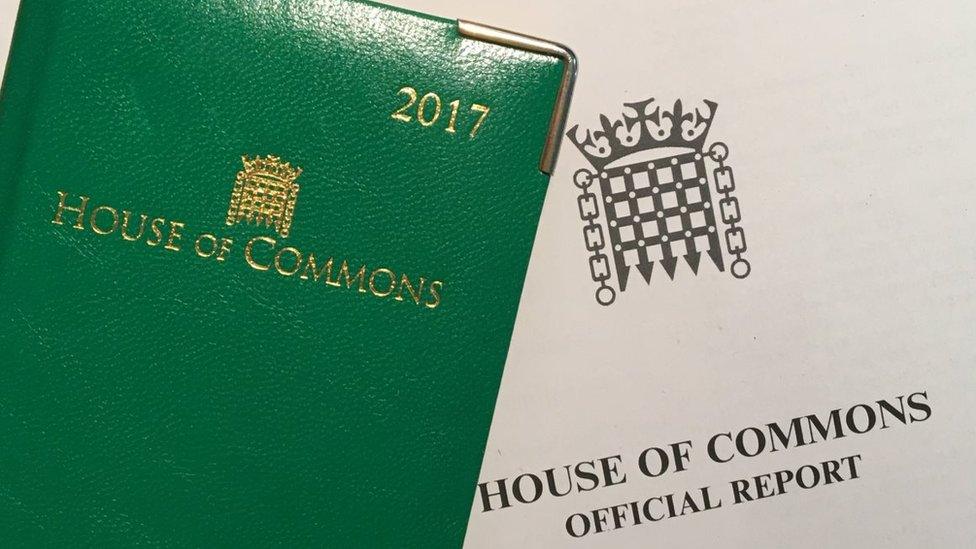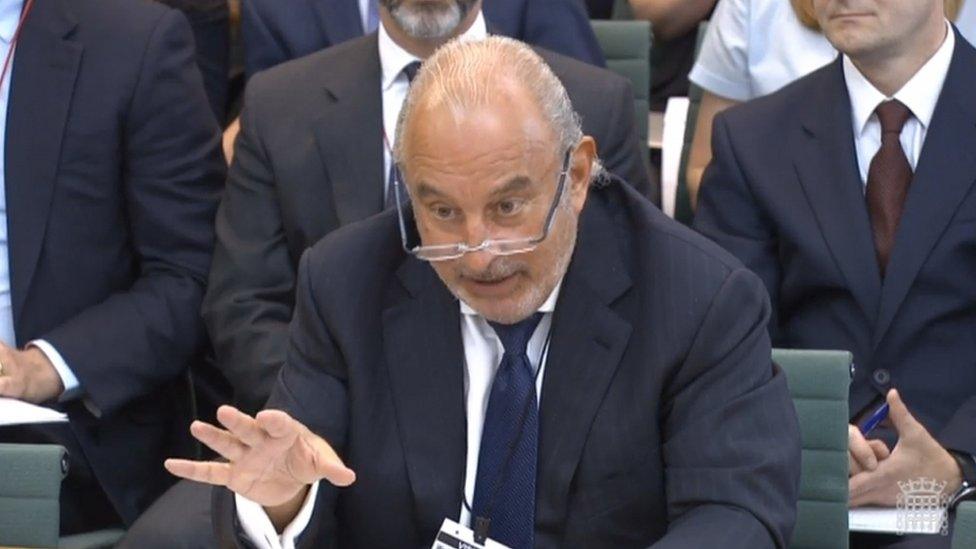General Election 2017: Parliamentary plans postponed
- Published

So the surprise election is on, all set for 8 June.
But what does an unexpected two month hiatus mean for Parliament, and the people who work there?
The Parliamentary estate, usually a hive of activity on weekdays from committee hearings at 9am to the rising of the House of Lords at 10pm, will be quieter than usual.
Westminster will temporarily cede its place as the centre of British politics. From 12:01am on 3 May there'll be no sitting MPs and incumbents and their staff will be banned from their Westminster offices entirely.
So what are we missing out on in Westminster while politicians and journalists head out across the country?
With an unexpected election and just a week of parliamentary time left, some government bills will not make it into law, while those that do may be rushed through with concessions to opposition parties.
The Finance (No. 2) Bill, external, Criminal Finance Bill, external and the Higher Education and Research Bill, external are among the pieces of legislation likely to get through (albeit with some tweaks), while the Prison and Courts Bill, and the Vehicle Technology and Aviation Bill are among those which will not make it.
Whether any of these bills will return or not will be up to the incoming government. Almost all of the hundreds of remaining private members' bills, on subjects as diverse as bat habitats and aircraft noise will also fail.

Philip Green giving evidence to a select committee last year on his sale of British Home Stores
The invitation to explain yourself in front of a select committee is one of the most feared appointments in public life. This parliament has seen explosive question sessions with the likes of Mike Ashley on working conditions at Sports Direct, Sir Philip Green on the collapse of BHS and the bosses of British Cycling.
But from 3 May there'll be no select committees, no questioning and because of the unexpected nature of the election, many of the hundreds of outstanding inquiries will not be concluded.
Others will have reports rushed out. Some will continue where they left off when the Commons returns, but there's no guarantee committee chairs and their priorities will remain the same.
Committee chairs like Culture, Media and Sport's Damian Collins, currently in the midst of high profile inquiries into fake news and doping in sport, are left to hope new committees will pick up where they left off.
They may not have to put themselves up for election, but peers will take an extended break too. All scheduled business for 3 May onwards is cancelled, and the House won't return until after the election.
So don't expect an answer to Baroness Jones of Whitchurch's question on the badger cull, scheduled to be asked on 4 May, external, anytime soon.
Many events due to be held within the Palace of Westminster will be cancelled.
Any event due to be hosted by an MP after 2 May won't happen. Most poignantly the unveiling of the memorial plaque to the murdered Labour MP Jo Cox in the House of Commons chamber was scheduled for 20 May, but is now cancelled. On Thursday the Speaker, John Bercow, promised the event would take place as soon as possible for after the election.
But for the Palace of Westminster itself, away from the politics, it's business as usual.
Far from staff putting their feet up, maintenance work will continue, commercial functions will be held in the building's hospitality areas, preparations will be made for the new intake of MPs and the lack of sittings will mean there can be more guided tours.
All without the inconvenience of MPs, peers and their legions of staff cluttering the place up...